Don’t Fear the FOMO
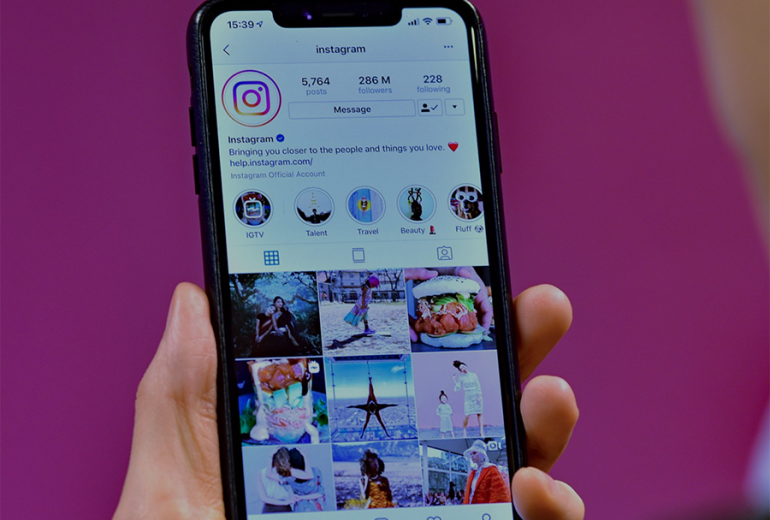
You’ve heard of FOMO, the fear of missing out, but let me tell you quantitatively, FOMO is driving consumer behavior. In fact, my backup data on this is none other than Charles Schwab. They did a wealth index survey for 2019. They show that more than a third of Americans are saying that indeed, they do fear missing out and that they’re spending as a result of the fear of missing out. In fact, troubling to Schwab was they’re actually spending more than they have because they want to keep up with the experiences that others are having on social media.
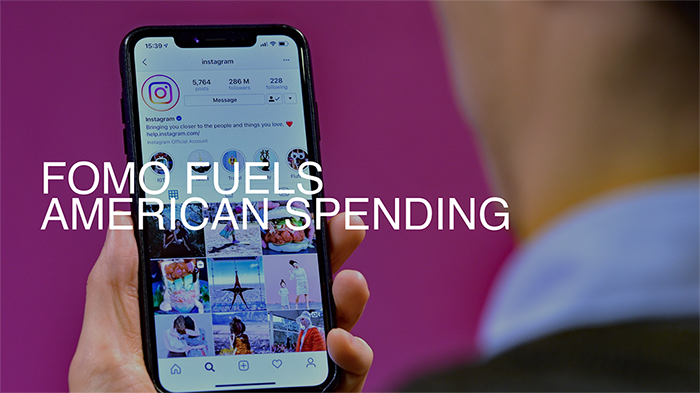 Go ahead and admit it…we’ve all posted photos of our food. In fact, 52% of younger consumers post photos about their food. What analysts are saying is that we’re now eating first with our eyes and secondly with our stomachs. The food not only has to be great, it has to look great.
Go ahead and admit it…we’ve all posted photos of our food. In fact, 52% of younger consumers post photos about their food. What analysts are saying is that we’re now eating first with our eyes and secondly with our stomachs. The food not only has to be great, it has to look great.
 The customer experience is something that everybody is focused on, and research shows that consumers are spending more on experiences than on luxury goods. Almost 90% of parents say they’d rather spend money on experiences for their children than on goods for their children. And, 70% of consumers who go to theme parks would rather spend money on an upgraded or elevated experience than on the normal ticket at a theme park. Two-thirds of moviegoers say they go because of the experience in the theater with the upgraded seats—the reclining seats and the food-at-your-seat experience.
The customer experience is something that everybody is focused on, and research shows that consumers are spending more on experiences than on luxury goods. Almost 90% of parents say they’d rather spend money on experiences for their children than on goods for their children. And, 70% of consumers who go to theme parks would rather spend money on an upgraded or elevated experience than on the normal ticket at a theme park. Two-thirds of moviegoers say they go because of the experience in the theater with the upgraded seats—the reclining seats and the food-at-your-seat experience.
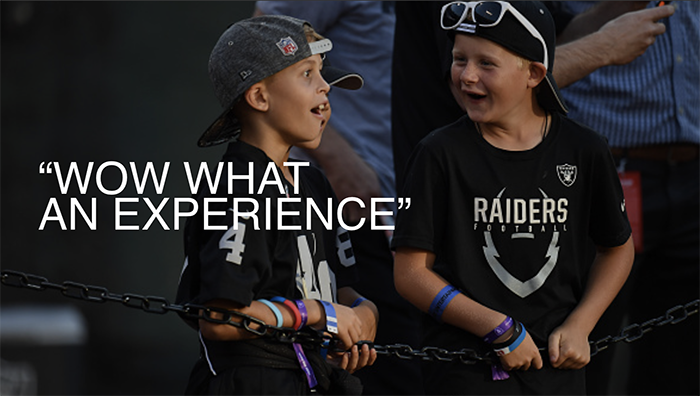 Fidelity Investments did a survey in 2018, and their research showed that 25% of us say that after a long hard week, what we would rather do more than anything else to relax is to have some sort of experience.
Fidelity Investments did a survey in 2018, and their research showed that 25% of us say that after a long hard week, what we would rather do more than anything else to relax is to have some sort of experience.
So, consumers are voting with their dollars, and what’s happening is they’re saying there’s such a FOMO out there and they want lasting happiness, and the winner is experience. You’ve seen those “reveal” videos of parents telling their kids they’re going to Disney World. They’re not at Disney World. They’re simply telling their kids they’re going to Disney World. This phenomenon shows us that there’s something in the human emotion that fuels the anticipation of an upcoming experience.
Successful companies aren’t obsessed with the problems. Successful companies are obsessed with elevated moments because elevated moments are those that stick with people. They’re memorable. People remember them. We don’t remember Disneyland or Disney World because of the long lines or because of the high prices or because of the large crowd. We remember them because they focus on elevated moments.
Theme park guests will pay more for an elevated experience. Elevated experiences have an afterlife. They spin out on social media and create part of that FOMO that says, “I want to be a part of that.” In fact, Cornell University did a study that said when we tweet and instagram about an experience…we actually remember it more.
So, we talked about the problems. We’ve talked about the consumer trends. We talked about how successful companies are responding. Now, what do we do?
First of all, we have to focus on the experience journey for the fan—what is it like for the fan to park and get into the door, to walk through the concourses and to get into their seat? How can teams elevate those moments where they engage something powerful and meaningful with their fan that’s tweetable, that’s shareable, and that deepens the experience. Advent takes a design-thinking approach where we focus on the human needs and start with those at the center of the problem. Being empathetic to the human aspect of the problem is key.
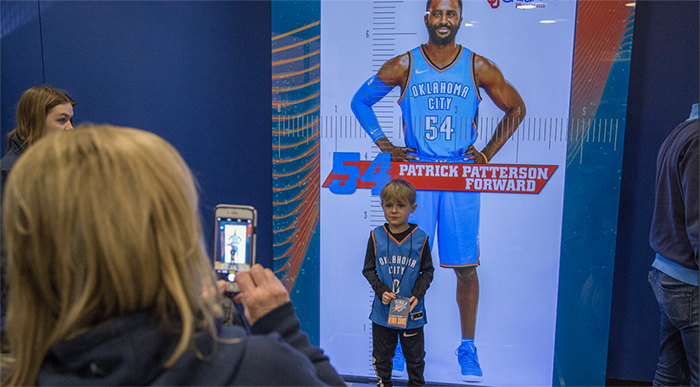 What we’ve got to realize is that the game itself happening on the field, on the court, on the rink, is not enough. We can’t be dependent on that performance. We’ll be wrong 50% of the time. We’ve got to focus on the WHY. Why do people come to our venue? Are they coming to see a competitive exchange? Are they coming to be entertained? Are they coming for an escape? Are they coming to enjoy time with family? Are they coming to enjoy an engagement opportunity to do business with a business prospect? We’ve got to understand the why, and we’ve got to be focused on creating a memory, and one that’s better than what’s taking place just on the field.
What we’ve got to realize is that the game itself happening on the field, on the court, on the rink, is not enough. We can’t be dependent on that performance. We’ll be wrong 50% of the time. We’ve got to focus on the WHY. Why do people come to our venue? Are they coming to see a competitive exchange? Are they coming to be entertained? Are they coming for an escape? Are they coming to enjoy time with family? Are they coming to enjoy an engagement opportunity to do business with a business prospect? We’ve got to understand the why, and we’ve got to be focused on creating a memory, and one that’s better than what’s taking place just on the field.
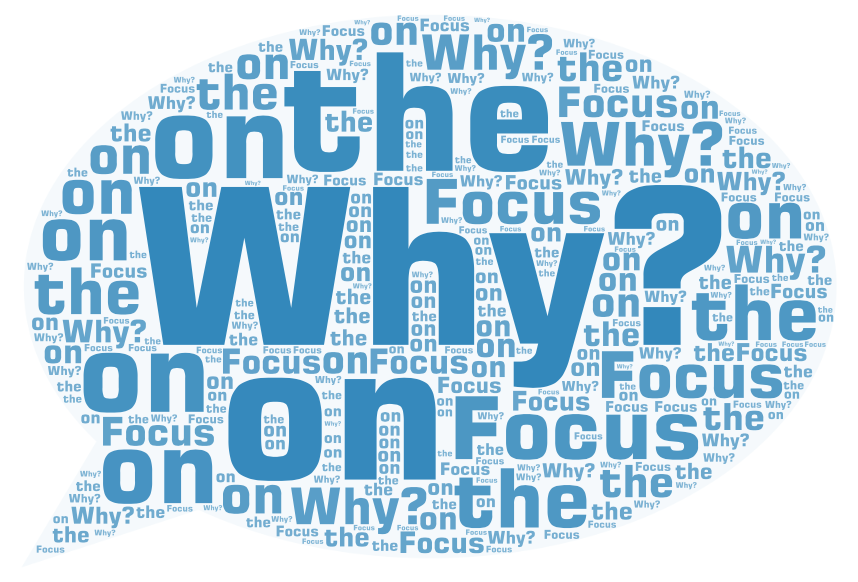 I recently hosted a session about the importance of elevated, sharable experiences for a group of professional sports team executives at the Association of Luxury Suite Directors Conference in Chicago. For more information regarding the data mentioned above and what it means for organizations like yours, I invite you to take a look at my full presentation here:
I recently hosted a session about the importance of elevated, sharable experiences for a group of professional sports team executives at the Association of Luxury Suite Directors Conference in Chicago. For more information regarding the data mentioned above and what it means for organizations like yours, I invite you to take a look at my full presentation here: